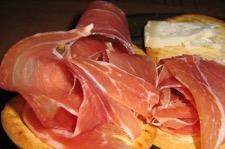 Have you ever wondered why it is so difficult to find a bottle of champagne in the domestic section of your local wine and spirits store? This is because the sparkling wine called “Champagne” is not a domestic product; it is produced exclusively within the Champagne region of France. Through international treaty, most countries limit the use of “Champagne” to only those wines from the Champagne region. As a result, the sparkling wines produced in the United States do not (or should not) use the term “champagne” on their labels. Indeed, in 2006, the U.S. Congress passed legislation prohibiting the use of the term “champagne” in association with domestically produced sparkling wines.
Have you ever wondered why it is so difficult to find a bottle of champagne in the domestic section of your local wine and spirits store? This is because the sparkling wine called “Champagne” is not a domestic product; it is produced exclusively within the Champagne region of France. Through international treaty, most countries limit the use of “Champagne” to only those wines from the Champagne region. As a result, the sparkling wines produced in the United States do not (or should not) use the term “champagne” on their labels. Indeed, in 2006, the U.S. Congress passed legislation prohibiting the use of the term “champagne” in association with domestically produced sparkling wines.
A geographical indication is a type of intellectual property right that is associated with goods — usually food-related goods — originating in a specific geographical place. Typically, such goods have a certain quality or characteristic that is associated with its place of origin. Various countries, particularly those belonging to the European Union, assiduously work to enforce laws to protect the reputation of regional foods through international treaties. Although the United States is not a party to these international treaties, the owners of geographical indicators are still able to protect their trademarks by registering them with the United States Patent and Trademark Office. For example, “Prosciutto di Parma” and “Parmigiano Reggiano” are registered certification trademarks designating foods originating in specific Italian geographical regions.
Owners of domestic regional indicators protect their trademarks in the same manner. For instance, the Idaho Potato Commission has a particular design and slogan (“Grown in Idaho”) that has been used exclusively for Idaho potatoes since 1955. In addition to certification, the Idaho Potato Commission has registered the design and slogan as a trademark. Likewise, “Vidalia“, is a registered trademark for Vidalia onions, which are grown within a certain region near Vidalia, Georgia. When you purchase a carton of juice stamped with “100% Florida orange juice” — it, too, a registered trademark — you know that it has been certified by Florida’s Department of Citrus and contains only juice squeezed from Florida oranges. So the next time you reach into the cheese case for a wedge of delicious Roquefort cheese, you can be assured that it has been manufactured from sheep’s milk and cured deep in the natural caves within the community of Roquefort in France, as it has been since 1866. Next month…intellectual property rights and the art of the cocktail…
— Deborah A. Logan, Esq.

